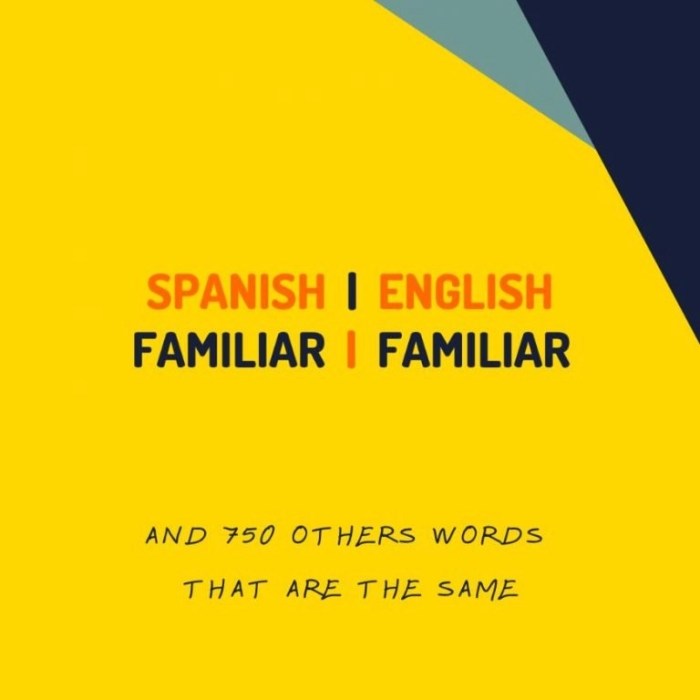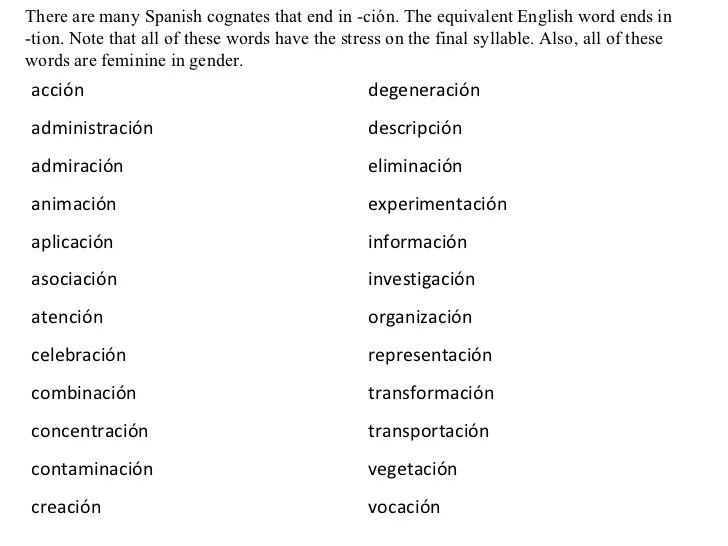Spanish words that end with cion – Spanish words ending in “-ción” captivate linguists with their unique grammatical function and rich semantic field. This suffix, derived from Latin, has shaped the language for centuries, giving rise to a vast array of nouns that encompass diverse concepts and ideas.
Delving into the intricacies of “-ción” words, we uncover their grammatical role as nouns, their semantic associations with abstract concepts, and the patterns governing their formation. By examining cognates and related words, we gain insights into the interconnectedness of languages and the evolution of vocabulary.
1. Meaning and Etymology of Spanish Words Ending in “-ción”: Spanish Words That End With Cion

Nouns ending in “-ción” in Spanish are formed by adding the suffix “-ción” to a verb stem. The suffix “-ción” typically indicates the action, effect, or result of the verb. For example, the noun “acción” (action) is derived from the verb “actuar” (to act).
Historically, the suffix “-ción” is derived from the Latin suffix “-tiōn-,” which had a similar function.
2. Grammatical Function of “-ción” Words

Nouns ending in “-ción” are grammatically feminine and typically function as abstract nouns. They represent concepts, ideas, or states of being rather than physical objects. In Spanish grammar, abstract nouns often play a crucial role in expressing complex thoughts and emotions.
3. Semantic Field of “-ción” Words
Words ending in “-ción” cover a wide range of semantic fields, including actions, emotions, states of being, and concepts. Some common examples include:
- Actions: acción (action), decisión (decision), formación (formation)
- Emotions: emoción (emotion), pasión (passion), satisfacción (satisfaction)
- States of being: condición (condition), situación (situation), posición (position)
- Concepts: educación (education), civilización (civilization), información (information)
4. Formation of “-ción” Words
Nouns ending in “-ción” are typically formed by adding the suffix “-ción” to the infinitive form of a verb. For example, the noun “educación” (education) is derived from the verb “educar” (to educate). However, there are some irregular formations, such as “acción” (action) from “actuar” (to act).
5. Cognates and Related Words

Many Spanish words ending in “-ción” have cognates in other Romance languages, such as French, Italian, and Portuguese. For example, the Spanish noun “educación” is cognate with the French noun “éducation,” the Italian noun “educazione,” and the Portuguese noun “educação.”
These cognates share similar meanings and etymologies.
6. Usage and Examples
Words ending in “-ción” are commonly used in both spoken and written Spanish. Here are some examples of their usage in sentences:
- La educación es esencial para el desarrollo de un país. (Education is essential for the development of a country.)
- La decisión fue difícil, pero necesaria. (The decision was difficult, but necessary.)
- La satisfacción de un trabajo bien hecho es incomparable. (The satisfaction of a job well done is incomparable.)
Helpful Answers
What is the grammatical function of “-ción” words?
“-ción” words are nouns that typically represent abstract concepts or actions.
What is the semantic field of “-ción” words?
“Ción” words often relate to concepts such as states, qualities, processes, and institutions.
How are “-ción” words formed?
“Ción” words are typically derived from verbs by adding the suffix “-ción” to the infinitive form.